July
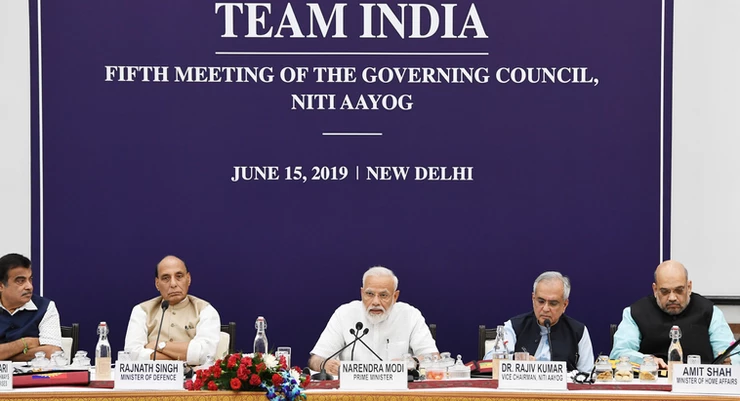
Health sector targets are to kept in mind, to be achieved by 2022: PM
The fifth meeting of the Governing Council of NITI Aayog was held under the chairmanship of the Prime Minister Shri Narendra Modi at Rashtrapati Bhawan today. It was attended by the Governor of Jammu & Kashmir, 26 Chief Ministers and the Lieutenant Governor of Andaman & Nicobar Islands, apart from Union Ministers, who are ex-officio members and special invitees. Vice Chairman, Members, CEO and senior officers of NITI Aayog also attended the meeting. Setting the tone of the meeting, the Prime Minister emphasized that this is the meeting of Team India. The PM said that States should recognise their core competence, and work towards raising GDP targets right from the district level.
On the health sector, the Prime Minister said that several targets are to kept in mind, to be achieved by 2022. He also mentioned the target of eliminating TB by 2025. The Prime Minister urged those States who have not implemented PMJAY under Ayushman Bharat so far, to come onboard this scheme at the earliest. He said health and wellness should be the focal point of every decision.
The Prime Minister highlighted the importance of the Governing Council of NITI Aayog as a platform to inspire cooperative federalism, stressing the need to collectively combat poverty, unemployment, drought, pollution, pockets of under-development and all such factors that constrain India’s progress. He emphasized that the goal is to realize the potential of this great country, to create a New India by 2022 and a USD five trillion economy by 2024. The Prime Minister emphasized the need for every State to focus on increasing its share in the country’s GDP by evaluating the export potential of the State and determining the steps necessary for increasing exports and boosting employment.
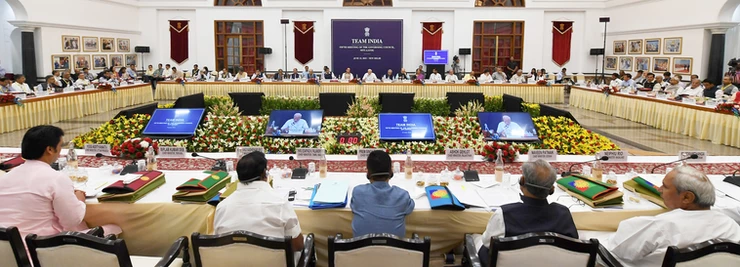
Vice Chairman, NITI Aayog urged all States to offer their suggestions on the policy recommendations contained in NITI Aayog’s ‘Strategy for New India @ 75’ so that they can be tweaked to suit the ground realities in individual States.
Welcoming the constructive discussion and suggestions made by various Chief Ministers, the Prime Minister assured the Council that these suggestions would be seriously considered in the course of decision-making. On the Agenda before the Fifth Council Meeting were the following items:
- Rain-Water Harvesting
- Drought Situation and Relief Measures
- Aspirational Districts Programme – Achievements And Challenges
- Transforming Agriculture: Need For Structural Reforms With Special Emphasis On:
- Agriculture Produce Marketing Committee (APMC) Act
- Essential Commodities Act (ECA)
- Security Related Issues with Specific Focus On LWE Districts
The Prime Minister appreciated the efforts of the States towards water conservation and urged all States to streamline and implement innovative water management measures. The creation of the Ministry of ‘Jal Shakti’ is a key step by the Union Government to develop an integrated and holistic perspective on water as a developmental resource.
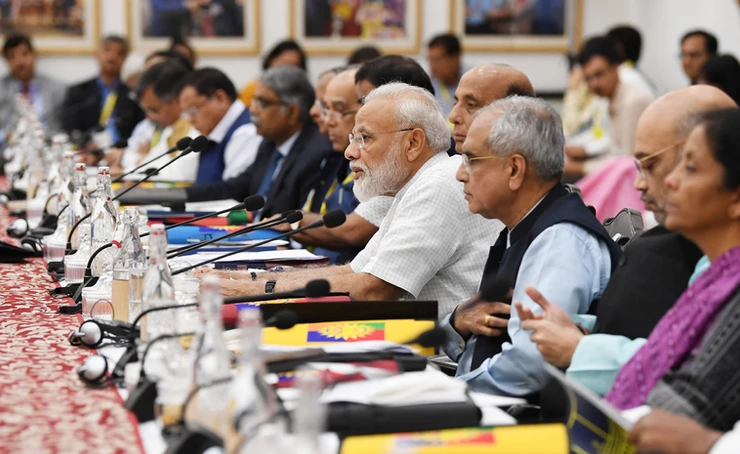
The Prime Minister also called upon the Fifth Governing Council Meeting to undertake foundational reforms in the agri-economy, leading to a complete transformation of the agriculture sector in India. The core agenda items included the need to review the implementation of the Agriculture Produce Marketing Committee (APMC) Act and possible reform in the form of the Model APMC Act as well as exploring changes in the Essential Commodities Act, to ensure fair remuneration for the farmers, streamlining of supply, driving more investment into the sector and predictability of policy at national and regional levels. The Prime Minister emphasized the need for undertaking structural reforms in agriculture including encouraging corporate investment, strengthening logistics and focusing on food processing.
The Prime Minister announced the creation of a high-powered committee on structural reforms in agriculture. He further said that global circumstances currently offer a unique opportunity to India. He said India is establishing itself on global benchmarks such as Ease of Doing Business. To achieve the goal of becoming a five trillion dollar economy by 2024, the Prime Minister urged States to aim to increase their economy by 2 to 2.5 times, which would also increase the common man’s purchasing power. He called upon Chief Ministers to study their State’s export potential and work on export promotion.
The Prime Minister said that the mining sector can provide significant employment opportunities. He said that bottlenecks in operationalization of mines continue to exist in several States. He said the NITI Aayog is working on these issues. The Prime Minister thanked the Chief Ministers for their suggestions and reiterated that that the Union Government is keen to partner with the States, and work together for India’s development.
The Governing Council also reviewed the implementation of the Aspirational Districts Programme, which has emerged as a major policy innovation in driving inclusive growth. Rapid progress has been achieved across all Aspirational Districts that have participated in this programme in 49 key performance indicators of human and social development. Various Chief Ministers noted the success of the programme in their respective States, and discussed possible schemes for extension of the programme to rapidly develop blocks in remote and difficult areas so that the spirit of inclusive development is effectively enforced. The Prime Minister commended the district administration teams on implementing several ‘out-of-the-box’ ideas in the Aspirational Districts resulting in significant transformation in many districts.


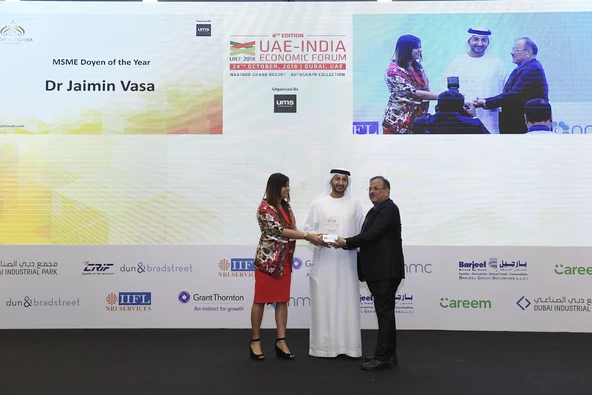
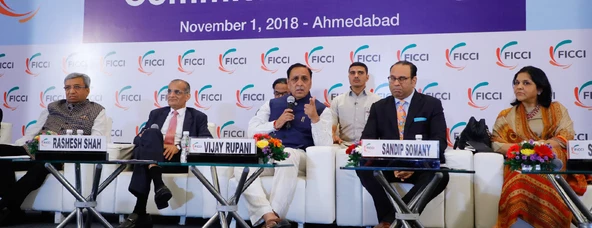
Leave a Reply